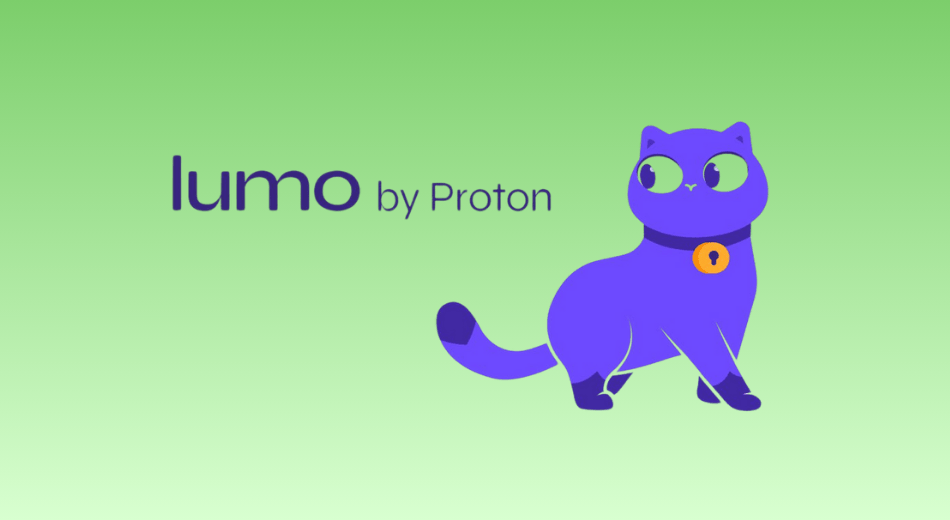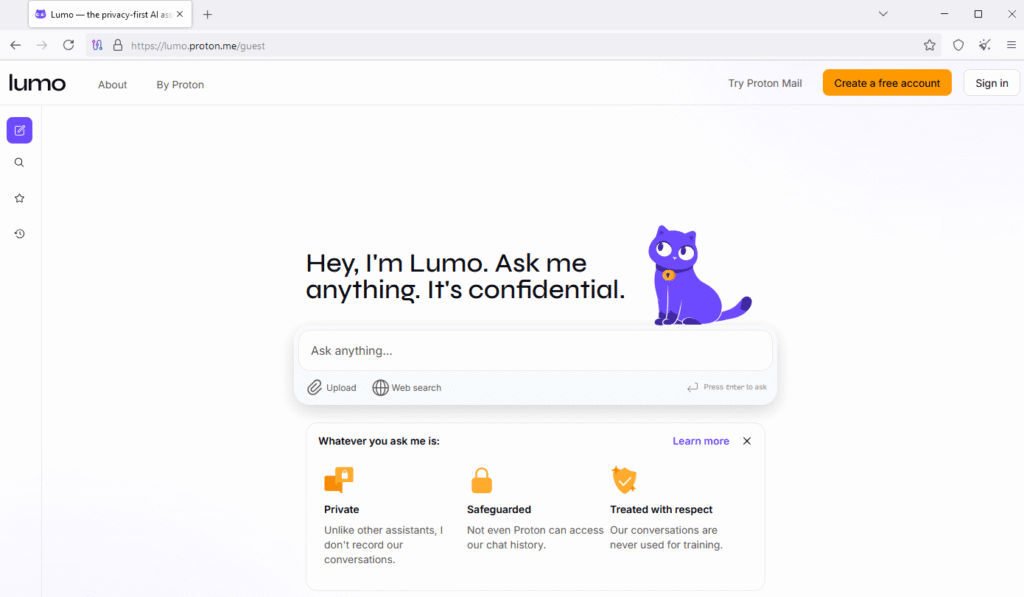
Swiss privacy tech company Proton has unveiled Lumo, a new open-source AI assistant designed to offer the benefits of generative AI without the data exploitation risks tied to Big Tech offerings.
Built with zero-access encryption, a strict no-logs policy, and hosted on European servers, Lumo aims to be a secure and privacy-respecting alternative to U.S. and China-based AI platforms.
Lumo represents the company’s latest step toward building a sovereign European tech stack. The assistant can handle a range of tasks, including document summarization, email drafting, and code review, all while ensuring that user interactions remain fully confidential. Conversations are encrypted on the device, never stored on Proton’s servers, and are not used to train large language models (LLMs). Lumo’s source code is openly available, underscoring Proton’s commitment to transparency.

CyberInsider
Proton, founded in 2014 by CERN scientists, is best known for its encrypted services like Proton Mail, Proton VPN, and Proton Drive. With over 100 million accounts secured globally, Proton’s ecosystem is built around the principle of privacy by default, avoiding any monetization through advertising or data sharing. The company is backed by the nonprofit Proton Foundation, which ensures alignment with privacy-centered values rather than commercial profit motives.
Lumo is part of Proton’s broader €100 million initiative to develop a sovereign “EuroStack” of privacy-first tools to help ensure European digital independence. The AI assistant is hosted entirely in Europe, placing it outside the jurisdiction of U.S. data surveillance laws and aligning it with stricter European data protection frameworks like the GDPR. This makes it particularly attractive for businesses and individuals wary of international data exposure.
Unlike other AI tools, Lumo’s features are designed around user control and privacy. Its zero-access encryption ensures that only users can view their chat history, which is never stored in a way accessible to Proton or third parties. The AI assistant does not default to internet searches for answers, and when it does, it relies on privacy-friendly search engines. Users can also upload documents and files, including directly from Proton Drive, for analysis without leaving a trace on remote servers.

Lumo is currently accessible via the web and mobile apps for iOS and Android. Users can try Lumo in various tiers:
- Lumo Guest: Limited free use without an account; no chat history stored.
- Lumo Free: Available to all Proton account holders; supports basic encrypted history and file uploads.
- Lumo Plus: Priced at $13.39/month (or $9.99/month billed annually), includes extended encrypted chat history, unlimited chats and favorites, and support for large or multiple file uploads. It’s also included in Proton’s Visionary plan.
Proton has previously integrated AI into its product suite with tools like Scribe, a writing assistant embedded into Proton Mail, and Proton Docs, an encrypted document editor. Lumo now expands the company’s privacy-first AI offerings beyond email, allowing secure generative AI use across personal and professional tasks.
Security-minded users and organizations looking for AI capabilities without sacrificing confidentiality can test out Lumo at lumo.proton.me.






This and DuckDuckGo Ai are the only private Ai that I know right now.
You’re forgetting about Brave’s Leo
Venice.ai